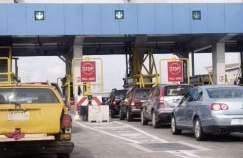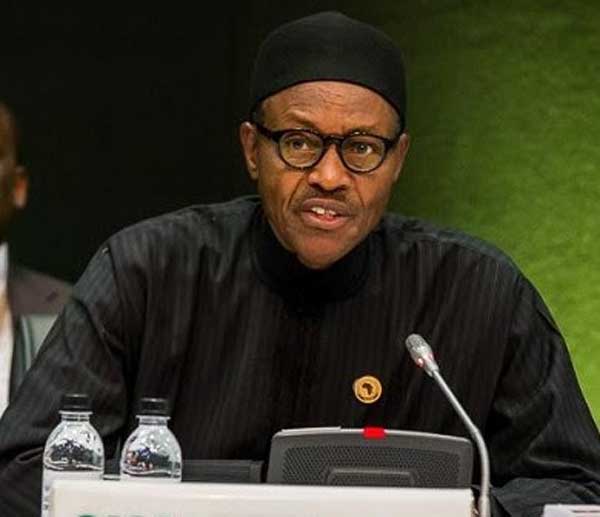Dear Buhari: The South Africans Call Road Toll Taxation “Highway Robbery”
Dr. Peregrino Brimah
Not quite a month that Nigeria got its new administration’s new Minister of Roads, Housing and Power than the new government via its minister announced road toll taxation on the frangible Nigerian masses.
Making this announcement Tuesday was new Minister Raji Fashola, the former governor of Lagos state. Raji Fashola is a man who can perhaps be described as somewhere between a US Republican wannabe and a an Elitist Hitleritarian. I am speaking frankly here.
The first sights of the new Minister was on our pockets, or rather, in our pockets. Money from us masses to maintain roads for us and provide an eternal supply of income for them through their affiliated taxation companies. His first major statement on resumption of office was brutal and almost angry or perhaps characterized by disgust and irritation: “we must tax you, we will tax you, we have to tax you to maintain the roads,” he repeated severally.
Look Somewhere Else, Do Not Look At Our Pockets. They Are Empty!
Nigeria’s broke and broken masses have dragged themselves through over 30 years of harsh, exploitative and oppressive governance with the nation’s commonwealth freely looted and scrounge infrastructure built with billions of dollars in oil earnings. The Military Junta and the party they established, the PDP, crippled the soul of the nation for these long and hard years, driving the masses to vote for the party of “change” for a breath of fresh air, but as a welcome gift to Nigerians who expected from the new government, a bit of respite and for once, opportunity for the masses and moderate restriction on the cabal, the Buhari government has announced road taxes via tolls as their reward.
Highway Robbery
I wrote critically about the then planned institution of these tolls in November of 2013 when the then brutal Jonathan government that misplaced 90% of Nigeria’s earnings dared to attempt it. In that article I pointed out the recurrent labour union protests that had delayed for several years, the attempt by the South African government to institute similar toll-taxation that South African peoples called, “Highway Robbery.”
What has changed since then? We have a new government, well partially, but have conditions improved for Nigerians? Are we already living, buying and spending better than during the Jonathan era, that we can now be drained of additional income?
Shouldn’t We First Enjoy The New Government’s Accountability, Sense And Seriousness?
Have we yet seen the benefit of taxation and enjoyed government accountability? Have our earnings, security and lifestyle appreciated? Are we expected to simply say that since the mantle changed hands, even with dozens of the same old faces and names still in all chambers of power, that we are now ready for the new government to levy us, most still living under a -dollar-a-day, while we have not yet had a chance to see, test and appraise them?
Does Nigeria not have money? Can someone tell us what we have and how it is spent before they decided to slam further taxes on us?
How About Taxation For Private Jets?
What about additional taxation on the wealthy first? Why does our new Minister of Power, Roads and Housing not think of or suggest taxation of Private jets before he plans additional burdens on an already crippled lower class? Do you know how much taxation on private jets will fetch in Nigeria? Do the wealthy travel by road? I ask respectfully, when last did the new Minister of Housing drive from Lagos to Abuja?
There are so many ways to tax the private jet club wealthy to pay for the upkeep of the roads. Why not start from there? Why not get rid of the Senate? That will free enough billions to pay for these roads. Why must the masses always be the ones to pay the price?
Where is the value from billions taxed from the road tolls from back in the day? Should Nigeria’s government not account for those taxes our fathers paid first before instituting new on us?
I will like to ask, if we now pay for our road use, what and in what way do we poor masses benefit from the government of Nigeria and the billions in oil revenue? What does our government do for us? Forget oil subsidies, we pay at the pump about as much as they pay in the US for the gallons of petrol we pump in our cars [NG $0.84: USA $0.97]. So what use is our government to us and where does our oil billions go other than financing the lavish lifestyles of the government workers, National Assembly workers, Ministers and the like? Seriously?
Don’t get me wrong, tolls may be useful, but not until the government has done other things and demonstrated accountability. Not until then should we be looked at as juicy lambs to be devoured by these relentless wolves.
Who Will Collect These Road Taxes? My Guess…
This brings the question or necessary comment: what companies will be in charge of the road toll gates? Will this be organized by the government or by private companies collecting on the government’s behalf as we have it in Fashola’s Lagos. I bet the Fashola-Tinubu cabal are falling over each other for this juicy opportunity to feed off of Nigerian masses for eternity. Is it Dr. Tunji whose Deux company billed Lagos state almost $900,000 for two boreholes, that will be in charge of setting up the road tax kiosks? We are still waiting for Minister Fashola, who was then executive accountant of Lagos state, to respect us enough to show us how and why his friend built two boreholes at 200xs the average price. Will our media help by taking pictures of these extravagant pumps to show us their complexity and lacing in gold, or they will continue to be cowardly, biased and hypocritical, pouncing on Stella Oduah for a less grievous embezzlement, but pretending not to notice Fashola’s?
So you see why we are worried with the toll taxation. I bet it will not be government officials collecting the taxes from our poor, hapless motor park commuters and market men and women, it will be some Fashola-Tinubu affiliated company that will be raking this massive revenue stream and taking 50% of earnings before handing over what’s left to our nation’s coffer. A task that the government and Federal employees can and should handle as happens in the United States and if not, then we do not want it. Nigerians must protest that no private company takes even 0.01% of this taxation of the masses. They do not deserver to drink our blood on a platter; seriously!
Just As We Predicted Of Him
I had predicted and warned against the very policies that Minister Fashola is opening up his tenure with. In my greeting article penned on his appointment, “To Nigeria’s new Minister of Power, Works And Housing”, published November 13th, I said,
“It is not poverty or the lack of power and houses that is behind Boko Haram, MEND, Ombatse and Radio Biafra and other terror organisations, no, as I have written expansively on in the past, it is Institutional Disenfranchisement: the robbing of poor Paul to feed rich Peter, the impoverishing and deportation of the poor to pave wealth and comfortable accommodation for the rich that is behind the unrest. Maiduguri peoples lived in huts without power and were satisfied. Their problem did not come from the lack of, but the wickedness of the extortionist cabal.”
I pleaded that Fashola think of the poor before thinking of the Cabal. I advised that if development comes at a risk to the wellbeing of the poor then we do not want it. After all, what happened to all the buildings built in Syria? Were they not destroyed in days? Arguably, Assad and Gaddafi forgot the Human element along the way. The Muslim Prophet predicted that in the last days, great cities will be destroyed in a day. If we continue to disenfranchise the poor then we will be the ones whose towns will be destroyed in days. Is this what we want? Are we not tired of carrying last?
Like I mentioned in that article, if the building of infrastructure comes at the price of the demolishing of human wellbeing and permanent enslavery and bondage of the poor then we do not need it. We do not need it.
Fashola, do you hate us? Give us a break already, common.



